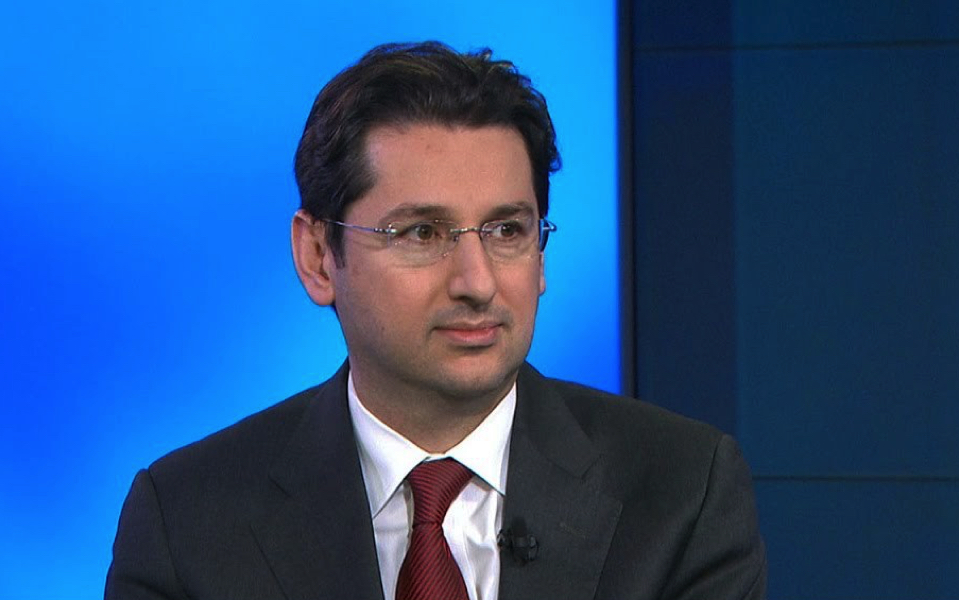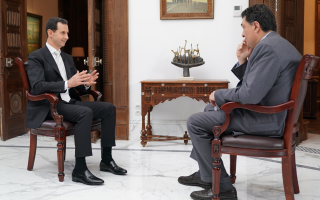Gulen ‘a convenient scapegoat,’ expert says

Uncertainty and concern have prevailed in Washington over the past few days with regard to US-Turkey relations. This is the consequence of a series of contradictory remarks by American officials regarding the White House’s intention to extradite Muslim cleric Fethullah Gulen to Turkey from the US. The Turkish preacher, who has been legally residing in Pennsylvania in self-imposed exile for almost 20 years, is accused by Ankara as being the mastermind behind the failed coup attempt of July 15, 2016, and is an integral part of Turkish President Recep Tayyip Erdogan’s crackdown narrative.
Amid repeated extradition requests from Ankara and a nebulous response by the administration of US President Donald Trump, Kathimerini spoke to Dr Aykan Erdemir, a senior fellow at the Washington-based Foundation for Defense of Democracies and former member of the Turkish Parliament. A specialist in US-Turkish relations and Erdogan’s diplomacy, Erdemir commented on the shift in Washington’s sentiment with regard to Gulen’s case, as well as the disastrous consequences that a possible extradition decision could bring about.
There have been conflicting remarks regarding the intentions of the White House on the Gulen case. Can you clarify the situation – did officials actually consider removing him from the US?
Within policy circles in Washington, there is absolutely no doubt that the news that broke last week is accurate. Of course there might be minor differences between the reporting and reality, but it is undeniable that White House officials entertained the idea of extraditing Gulen. Beyond that, I can also tell you with certainty that most DC-based analysts, representing the entire political spectrum, shared my sentiment of shock in response to the White House’s lack of consideration with regard to the catastrophic consequences that such an appeasement policy could have.
Last week US State Department spokesperson Heather Nauert said there is absolutely no connection between the Gulen case and the situation with Saudi Arabia. What do you see as possible motives for the US to extradite the Muslim cleric?
Recently, Washington has been constantly searching for ways to restore healthy relations with Ankara. A simplistic, quick-fix solution that could improve relations in the short term is to expel Gulen from the country. There are a number of reasons as to why these conversations are occurring now, and certainly the [Jamal] Khashoggi case is one of them. The US is clearly worried about the ways in which Erdogan has been exploiting the assassination to extract concessions and influence the situation in the Middle East.
However, there are a number of other factors to be considered. Turkey can play a spoiler role in the fight against ISIS in Syria through cross-border military operations targeting Washington’s Syrian Kurdish partners. Moreover, now that the US is imposing a fresh wave of sanctions against Iran, it is a good opportunity to remember it was Turkey that undermined the very same measure in 2012-13 and provided a lifeline for the Iranian economy – something Washington clearly wants to avoid this time. We therefore see a number of issues where Erdogan can play a decisive, instrumental role. I think that during an exchange of ideas in Washington, US officials ended up with a quick-fix solution, which in reality is extremely counterproductive.
What possible consequences could extraditing the Islamic cleric back to Turkey have?
First of all I think it would be an extremely complex and challenging legal procedure. Even though I can attest to a certain degree of corrosion, there is still a very robust rule of law in the US and it would be very difficult to undo that completely. Beyond that, I have been advocating for years that Erdogan does not actually desire extradition. The Turkish president would be terrified by the idea of Fethullah Gulen, his key ally between 2002 and 2013, appearing at a Turkish court and confessing to their criminal partnership to eliminate their secular adversaries. Gulen is of more use to Erdogan as a bogeyman in Pennsylvania, providing the Turkish president a convenient scapegoat on whom to blame all his failures, ranging from the economic crisis to democratic backsliding.
But could it be possible to push him to a third country – and, if so, what would the impact of that be?
Indeed, that is a possibility, and already the consequences of the White House entertaining the idea of appeasing Erdogan have been devastating. The White House has just provided Erdogan with a great gift, a lifeline that he will exploit to deflect attention from the dismal state of the economy and the legal system in Turkey – don’t forget that local elections are coming up in March. After last week’s developments, Erdogan, who has butchered Turkey’s justice system, can now also claim the moral high ground of due process, and present himself as a powerful world leader who can even bend President Trump’s will.





